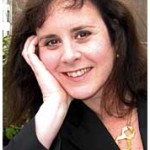 If love and hate are the ace and king of emotions, inseparable but different, then anger has to be the Queen of Spades. It’s a crucial emotion, but holding on to it isn’t healthy, as Brooklyn Heights resident author Valerie Frankel is reminded at the start of her hilarious new memoir, “It’s Hard not to Hate You.”
If love and hate are the ace and king of emotions, inseparable but different, then anger has to be the Queen of Spades. It’s a crucial emotion, but holding on to it isn’t healthy, as Brooklyn Heights resident author Valerie Frankel is reminded at the start of her hilarious new memoir, “It’s Hard not to Hate You.”
And let’s be clear, Frankel has much to be angry about, including her young husband’s death from a freak case of lung cancer, leaving her the widowed mother of two very young daughters; her own family history of cancer and an early cancer scare of her own; and the daily aggravations of life in a large city: traffic, crowds, and unfriendly neighbors.
Starting from her awkward teenage years, through her awkward dating years, and on through her awkward medical complications in her forties, Frankel reports swallowing her anger, humiliation, and rage at life’s mishaps. She keeps it in as hate. When a doctor tells her to reduce stress, she figures, “Doctor’s orders: The hate in me just had to come out.” Over the course of a year, Frankel learns to express her anger, and getting it out makes the feelings manageable. She’s probably healthier. This book is a nice side benefit for the rest of us.
In story after story, Frankel revels in who she hated (hates), and why. She elegantly intersperses academic studies about emotions with the efforts she has made over the years to overcome the hate. One of the many funny examples in the book is the suggestion a couples counselor makes to help Frankel have fights that accomplish something with her (second) husband. “Ask questions. Pretend you’re on Jeopardy! And put everything in the form of a question.” This doesn’t work out quite as the counselor intended when Frankel and her husband get into a fight at Key Food, but the result works. “We weren’t engaged in a productive conversation about our conflict. But we were laughing together, which, unlike fighting productively, we were very good at.” (What is my favorite scene on page 116?)
Examples abound: the BBoA, the past boyfriends, BFF parents, and I kept laughing out loud as I read. You will, too. Anyone who has ever been a teenage girl, or who is a teenage girl, or who lives with a teenage girl, or anticipates having one around in a few years, should head over to BookCourt for insights and some useful truths. Oh, and did I mention? It’s very FUNNY.
What’s your best technique for day-to-day coping? Discuss in the comments.
Have a book you want me to know about? Email me at asbowie@gmail.com.


